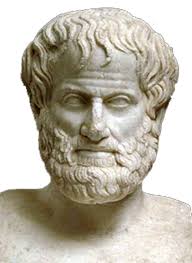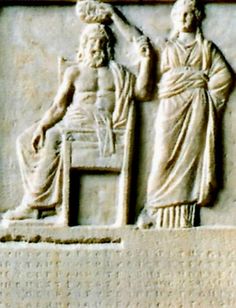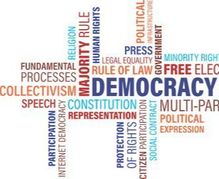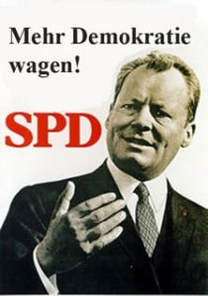| Homepage Ralph Häussler |
|
- Home
- CV
- Research
-
Celtic Religions
-
Wolf
-
City of Worms
-
Railways
- RailHeritage >
- Aberyswyth-Carmarthen
- RailWorms >
-
Tramways
>
- Tram Amsterdam
- Tram Barcelona
- Tram Basel
- Tram Berlin
- Tram Blackpool
- Tram Bonn
- Tram Bruxelles
- Crich Tram Museum
- Tram Darmstadt
- Tram Dresden
- Tram Edinburgh
- Tram Frankfurt
- Tram Graz
- Tram Grenoble
- Tram Heidelberg
- Tram Innsbruck SLB
- Tram Karlsruhe
- Tram Linz
- Tram Lisboa
- Tram Llandudno (Gt Orme)
- Tram London
- Tram Lyon
- Tram MaLu
- Tram Manchester
- Tram Milano
- Tram Montpellier
- Tram Mulhouse
- Tram Nottingham
- Tram OEG
- Tram Orleans
- Tram Paris
- Tram Reims
- Tram Roma
- Tram Salzburg
- Tram Torino
- Tram Strasbourg
- Tram Wien
- Tram Wien Badner Bahn
- Tram Worms
- Tram Zaragoza
- Tram Zurich
- NarrowGauge >
- Trolleybuses
- U-Bahn Metro
- Epona
- Pets
A Plea for More Democracy! Ancient & Modern Democracies
// Plädoyer für mehr Demokratie // la démocratie, antique et moderne
|
SORRY, Seite in Aufbau //
THIS PAGE IS STILL WORK IN PROGRESS |
Download my paper on Grassroots Democracy: the Athenian Experiment in "Potestas"
|
What can we learn today from Athens, the world's oldest democracy, c. 508 to 322 BC? // Was können wir heute von Athen, der ältesten Demokratie der Welt (ca. 508 bis 322 v.Chr.), lernen...?
A few voices from democratic Athens, 5th-4th century BC
|
Meinungsfreiheit & den Argumenten anderer zuhören...
// Freedom of Speech & listening to other people's arguments... Today, people have increasinly lost the ability to listen to other people's arguments, to engage in a dialogue. Modern social media, like Facebook and Twitter, have aggrevated this phenomenon: one only gets 'posts' that broadly agree with one's own convictions. But a democracy cannot work if people do not respect each other's views. Even the ancient Athenians acknowledged this 2,500 years ago: Thukydides 2, 40, 2 wrote in the fifth century BC / 5. Jh. v. Chr.: 'We likewise weigh what we undertake and apprehend it perfectly in our minds, not accounting words for a hindrance of action but that it is rather a hindrance to action to come to it without instruction of words before.' "Denn wir sehen nicht im Wort eine Gefahr fürs Tun, wohl aber darin, sich nicht durch Reden zuerst zu belehren, ehe man zur nötigen Tat schreitet." Kollaboration, Team-Work, Synergieeffekte // Collaboration, Team Work, Synergies Interesting statement by Aristotles Politics 3. 1281a40 - 1281b10: The 'mass' is more competent than the 'few' or even the best individual: // Die Menge ist kompetenter als ein paar Wenige ("Oligarchie") oder selbst der beste Einzelne: But perhaps some one would say that in any case it is a bad thing for a human being, having in his soul the passions that are the attributes of humanity, to be sovereign, and not the law.... it is more proper for the multitude to be sovereign than the few of greatest virtue might be thought to be explicable and to have some justification. For it is possible that the many, though not individually good men, yet when they come together may be better, not individually but collectively ... ...for where there are many, each individual, it may be argued, has some portion of virtue and wisdom, and when they have come together, just as the multitude becomes a single man with many feet and many hands and many senses, so also it becomes one personality as regards the moral and intellectual faculties. This is why the general public is a better judge of the works of music and those of the poets, because different men can judge a different part of the performance, and all of them all of it. ... Daß aber das Entscheidende eher die Menge ausmacht als die wenigen Besten (...) birgt vielleicht auch eine Wahrheit. Denn (...) die Vielen (...) wenn sie zusammengekommen sind, besser sind als jene Besten, nicht allerding als einzelner, sondern als Gesamtheit genommen (...). Denn da sie viele sind, kann jeder über einen Teil der Tugend und der Einsicht verfügen, und wenn sie zusammenkommen, kann die Menge werden wie einziger Mensch, der viele Füße, Hände und viele Sinneswerkzeuge hat und so auch im Hinblick auf die Wesensart und die Denkweise. Aristoteles, Pol. 3, 1286a24-31: "Und jeder Einzelne für sich ist sicherlich schlechter, wenn er mit dem besten Mann verglichen wird, aber ein Staat besteht aus vielen (...). Und deshalb beurteilt die Menge auch vieles besser als irgendein Einzelner. Zudem ist aber die Menge unbestechlicher als irgendein Einzelner (...). Das Urteil eines Einzelnen ist verdorben, wenn ein Einzelner von Zorn oder einer sonstigen Emotion übermannt wird; dort ist es aber schwer, daß alle Zugleich in Zorn geraten und Verfehlungen begehen." In a democracy, (like Classical Athens), the poorer people are more powerful than the rich (well, certainly not true in modern democracies...) Aristoteles, Pol. 6, 1317a40-b17: Now a fundamental principle of the democratic form of constitution is liberty—that is what is usually asserted, implying that only under this constitution do men participate in liberty, . But one factor of liberty is to govern and be governed in turn (...) ...in democracies the poor are more powerful than the rich... (...) And one is for a man to live as he likes; for they say that this is the function of liberty, inasmuch as to live not as one likes is the life of a man that is a slave ... This is the second principle of democracy, and from it has come the claim not to be governed, preferably not by anybody, or failing that, to govern and be governed in turns; and this is the way in which the second principle contributes to equalitarian liberty. ... Grundlage der demokratischen Staatsform ist die Freiheit (eleutheria). Zur Freiheit gehört, daß man abwechselnd regiert und regiert wird (...). Wo diese Gerechtigkeit herrscht, da muß die Menge (plethos) Herr (kyrios) sein. (...) So sind dann in den Demokratien die Armen mächtiger als die Reichen. (...) Ein anderes Zeichen der Demokratie ist es, daß man leben kann wie man will (...). Das Volk entscheidet alles, nicht Beamte oder Behörden! // The People decide everything, not any office holders or civil servants! Aristoteles, Pol. 1317b19-30: [1317b] (...) The following institutions are democratic in character: election of officials by all from all; government of each by all, and of all by each in turn; election by lot ..... no office to be held twice... by the same person.; short tenure either of all offices or of as many as possible; judicial functions to be exercised by all citizens. And in respect of the magistracies it is democratic to have none tenable for life, (...) alle Ämter werden aus allen besetzt, alle herschen über jeden und jeder abwechslungsweise über alle. Ferner werden alle Ämter durch Los besetzt (...) Keiner darf ein Amt zweimal bekleiden (...). Die Ämter sind alle kurzfristig (...). Richter können alle sein und können aus allen entnommen werden und richten über alles (...). Die Volksversammlung entscheidet über alles (...), die Behörden dagegen über nichts oder nur ganz wenig. |
Modern democracies: facade, passiveness, disenchantment and disenfranchisement
"Mehr Demokratie wagen!"
"Let's dare more democracy" This was the political slogan of Willy Brand in 1969, the Chancellor of West Germany (1969-1974)! Well, those good times seem to be over... |
I am absolutely passionate about democracy, but 'real' democracy!
Unfortunately, our modern "democracies" are really "oligarchies", dominated by specific elite groups in society. Today our so-called "democracies" are merely a forum for "elite" competition, the contest between different party leaders who want to acquire sole power for 4 or 5 years, backed by influential financial magnates and lobbyists that really only want to make a profit. And in order to gain power, many politicians are manipulating the voters, (ab)using the media, using populist ideas - however incredible or fake - just to get elected! Moreover, our so-called "democracies" have aged rather rapidly: many MPs (as well as councillors and members of various other assemblies or parliaments at regional or local level...) have been in office for years, often decades; and how often do we see political dynasties, the 2nd or 3rd generation of politicians in the same family! Not to mention gender, age and ethnicity unbalance (and we don't want to mention lobbying here either, a major problem of modern 'democracies'!). The gap between the people's "elected representatives" and the general public is widening. And the public has the feeling that their influence on political decision-making is more and more limited. We find members of parliament that are forced to follow party politics. Decisions are made by the leaders of political parties. On the other hand, the "people" are rather passive in modern "democracies": indeed, we don't have much chance for active engagement if politics are controlled by certain social groups (e.g., parties). Voters therefore just passively make use of their democratic rights; this is even more so the case in the context of outdated voting systems, like the first-past-the-pole in the UK, where many people choose not to vote at all since they consider that their vote makes no difference in their constituency... Non-Participation, Disillusionment, Disenchantment As a result, the general public across Europe is often tired of politics nowadays. There is a nice German word to describe this: Politikverdrossenheit, i.e. a certain "disenchantment" with politics... But democracy cannot survive like this! (Well, one might wonder whether democracies have survived or whether they are just a facade today?). Re-invogarate our democracies! We need to re-invigorate our democracies, make them more democratic... Some 2,500 years ago, the Athenians developped what would be known as the first democracy (literally the rule of the demos, the "people"). When Cleisthenes reformed the Athenian State, the term democracy/demokratia did not yet exist, but he developed a system that aimed to wipe out elite competition for power, the endeavour of indiviuals to acquire full control of the state... - It took some time before people realised that the "demos", the people, the common people, were ruling the state: by the mid-5th century BC, the term democracy became increasingly common, and with it the ambition to marginalise Athenian elites more and more. |
What can we learn today from ancient democracies?
|
The Athenian democracy was not perfect, but it was new, work-in-progress, constantly being improved upon, by the Athenian people themselves, who were trying to correct faults, aiming to make the demos ('people') the real sovereign while fighting corruption and misjudgments...
Food for Thought!
But despite certain faults, Athens can still provide some important food for thought for our society today. If it had continued, perhaps women would also have received the same rights as men in Athens' democratic institutions (but it is worth noticing that women usually only got a vote in our modern democracies after the First World War, sometimes much later, and they are still today often disadvantaged in elections). On this website, I can of course only mention a few of those aspects that I find worth noticing... Democracy should be founded on a bottom-up society, not top-down! Today, "national" parliaments often have just too much power, and regional and municipal/urban authorities are frequently limited in their power and their financial abilities... In Athens, the development of the democracy went hand-in-hand with giving more autonomy to the demes, the parishes or districts across Athens and Attika. Decisions could be made at village/district level. And this is where people would learn the basics for democracy... Grassroots Democracy - across society / Basisdemokratie Instead, we should start to improve democracy at the local level (the parish/district, suburb, village, and the city), the institutional level (e.g., in a company, office, university,...). The smaller the group of people involved, the easier it is to add some useful aspects of Athenian-style democracy. At the local and institutional level, this is where many decisions should be taken, while national and supra-national parliaments can build on the regions and create basic frameworks that facilitate life. But of course, ancient Athenian democracy also reminds us that the people need to be educated, gain experience, learn to listen to arguments, as Aristotle says "govern and be governed in turn",... and power must be limited to one year of office. Teamwork and Synergy Effects Athens tells us a lesson on team work, the synergy effects when different people work together, and avoiding giving too much power to individuals. But Athens also shows us that one tried to elimante possibilities of corruption as much as possible, through annuity, selection by lot, changing chairmen (rotation), checking office holders, and many other routines... |
Re-thinking and re-invigourating our democracies...
|

Since selection by lot was so important in the concept of Athens' democracy, one developped a maschine to speed up the process of selecting the jurors, the so-called κληρωτήριον (Kleroterion), allotment device // In Athens Demokratie entscheidet das Los, denn eine Wahl hielt man für undemokratisch und oligarchisch. Um die zufällige Auswahl von Richtern zu beschleunigen entwickelte man die Losmaschine (κληρωτήριον) // machine à tirer au sort les jurys (Agora Museum Athens)
|
A few democratic paradigms developped in ancient Athens
|
|
Further Reading
|
Auswahl an antiken Quellen // Selection of Ancient Sources
Most of these ancient works can be found online: see for example perseus.tufts.edu. Beware of the inherent anti-democratic bias in many of these works: many of these ancient authors were written by elite people who actually diapproved, even detested, any form of democracy, believing that only an educated elite should be involved in politics. Aristoteles, Pol. 6,2,1317a40-b17 u. 1317b18-1318a3 Aristoteles, Athenaion Politeia (Ἀθηναίων πολιτεία) (cf. download Ath Pol). Thukydides 2,37-38.40 Plutarch, Perikles Demosthenes' speeches Xenophon Ps.-Xenophon / Old Oligarch, Constitution of the Athenians (Ἀθηναίων πολιτεία). Inscriptions: see e.g., Online Epigraphic Database for the Athenian Democracy (Michael Arnush, Harvard) Just a very small selection of interesting and important works: Bleicken, J. 1995. Die athenische Demokratie (4.ed.) Paderborn. Dowlen, O. 2008. The Political Potential of Sortition. A study of the random selection of citizens for public office. Exeter. Eder, W. (ed.) 1995. Die athenische Demokratie im 4. Jh. v. Chr.: Vollendung oder Verfall einer Verfassungsform. Stuttgart (see e.g. chapter by W. Eder on pp. 11-28). Finley, M. I. 1973. Democracy Ancient and Modern. London, = Antike und moderne Demokratie. Stuttgart 1980. Haeussler, R. 2010 “Athen als demokratisches Experiment. Ein Plädoyer für die Basisdemokratie”, in: Arlinghaus, Hucke and Kotte (eds.), Verfassungsgeschichte aus internationaler und diachroner Perspektive, München, pp. 211-239. Haeussler, R. 2011. “Grassroots Democracy: das athenische Experiment”, Potestas 4, 2011, 21-53. Manville, B. and Ober, J. 2003. A Company of Citizens. What the World's First Democracy Teaches Leaders About Creating Great Organizations. Cambridge, MA., Harvard Business School Press. McGLew, J. F. 2002. Citizens on Stage. Comedy and political culture in the Athenian democracy. Ann Arbor 2002. Morris I. - Raaflaub, K. (eds) 1998. Democracy 2500? Questions and Challenges. Dubuque, Iowa. Ober, J. 1996. The Athenian Revolution. Essays on ancient Greek democracy and political theory. Princeton. Ober, J. 2005: Athenian Legacies: Essays on the Politics of Going On Together. Princeton. See for example chapters on "Classical Athenian Democracy and Democracy Today" (pp. 27-42), "The Athenian Debate over Civic Education" (pp. 128-156), etc. Raaflaub, K. 1985: Die Entdeckung der Freiheit. Zur historischen Semantik und Gesellschaftsgeschichte eines politischen Grundbegriffes der Griechen. München 1985 = The Discovery of Freedom in Ancient Greece. Chicago 2004. Raaflaub, K. - J. Ober - R.W. Wallace (eds) 2007. Origins of Democracy in Ancient Greece. Berkeley. Rhodes, P.J. 1992. "The Athenian Revolution". In CAH V.2, pp. 67-75. Rhodes, P.J. (ed.) 2004. Athenian Democracy. Edinburgh. Ruschenbusch, E. 1979. "Die soziale Zusammensetzung des Rates der 500". ZPE 35 (1979) 177-80. Samons II, L. J. 2004. What's wrong with democracy? From Athenian Practice to American Worship. Berleley 2004. Walter, U. 1993. An der Polis teilnehmen: Bürgerstaat und Zugehörigkeit im archaischen Griechenland. Stuttgart. |
Disclaimer: please surf at your own risk...
The information contained in this website is for general information purposes only. I endeavour to keep the information up to date and correct, but I cannot guarantee its completeness, accuracy, reliability or suitability. I am not responsible for any action taken as a result of the information or advice on my website.
Through this website you are able to link to other, external websites which are not under my control; these links are being provided as a convenience and for informational purposes only; the inclusion of any links does not necessarily imply a recommendation or endorse the views expressed within them, and I bear no responsibility for the accuracy, legality or content of the external site or for that of subsequent links. Contact the external site for answers to questions regarding its content. Some off-site links might change in the course of time, and content might change as well; if a link is not appropriate, or if it no longer exists, please let me know so that I can remove it. I always welcome any comments to improve the site.
Copyright:
The content and research of this website is protected by copyright. No portion of this website may be copied or replicated in any form without the written consent of the website owner. Many of the images on this page come from external sites: I have tried to find out the copyright owners of all the images on this page and I apologise if I missed someone or if I was not able to find the original sources/photographer/copyright owner. The site is still work-in-progress: sorry if I forgot to add a reference.
How to cite this page:
Raph Häussler (2016) Plea for More Democracy, retrieved from https://ralphhaussler.weebly.com/democracy.html
The information contained in this website is for general information purposes only. I endeavour to keep the information up to date and correct, but I cannot guarantee its completeness, accuracy, reliability or suitability. I am not responsible for any action taken as a result of the information or advice on my website.
Through this website you are able to link to other, external websites which are not under my control; these links are being provided as a convenience and for informational purposes only; the inclusion of any links does not necessarily imply a recommendation or endorse the views expressed within them, and I bear no responsibility for the accuracy, legality or content of the external site or for that of subsequent links. Contact the external site for answers to questions regarding its content. Some off-site links might change in the course of time, and content might change as well; if a link is not appropriate, or if it no longer exists, please let me know so that I can remove it. I always welcome any comments to improve the site.
Copyright:
The content and research of this website is protected by copyright. No portion of this website may be copied or replicated in any form without the written consent of the website owner. Many of the images on this page come from external sites: I have tried to find out the copyright owners of all the images on this page and I apologise if I missed someone or if I was not able to find the original sources/photographer/copyright owner. The site is still work-in-progress: sorry if I forgot to add a reference.
How to cite this page:
Raph Häussler (2016) Plea for More Democracy, retrieved from https://ralphhaussler.weebly.com/democracy.html








